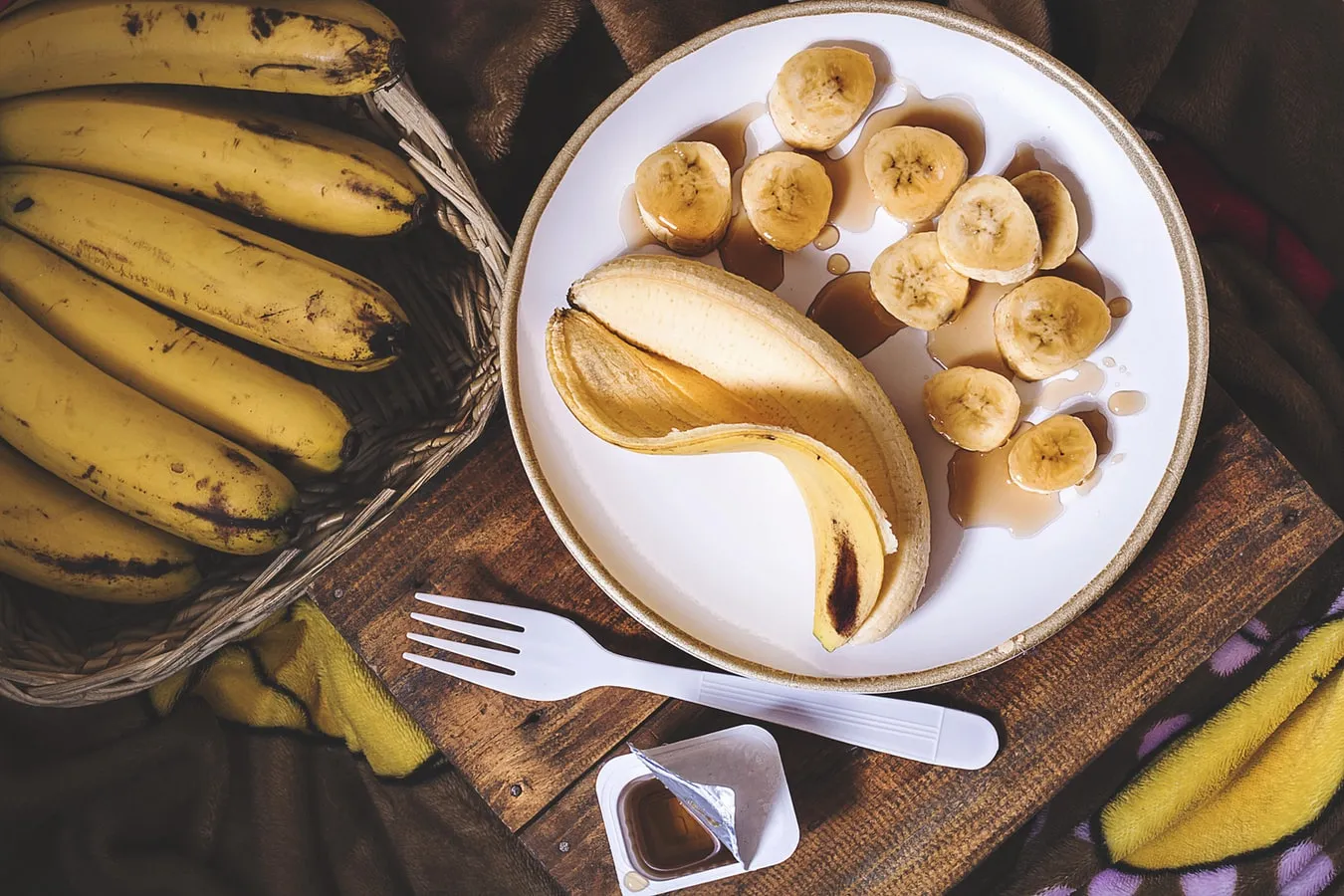The Science Behind Why You Shouldn’t Refrigerate Bananas: Tips for Keeping them Fresh at Room Temperature
Have you ever wondered why bananas shouldn’t be refrigerated? It’s a common question and the answer lies in the science behind bananas and refrigeration. This article will delve into the effects of refrigerating bananas and why it’s best to store them at room temperature. We’ll also provide tips for keeping your bananas fresh and delicious. If you’re curious about this fruit and want to learn more, keep reading!
The science behind refrigerating bananas.
Bananas are a fascinating fruit, with a delicate balance of ripeness and sweetness that can be difficult to achieve. The science behind bananas and refrigeration is crucial in maintaining their quality and extending their shelf life.
When bananas are harvested, they are still green and unripe. As they ripen, a chemical process called respiration occurs, where oxygen is converted into carbon dioxide and water vapor. This process also produces heat, which accelerates the ripening process.

Refrigeration slows down this chemical process by reducing the amount of oxygen available to the banana. This results in a slower rate of respiration, which ultimately leads to a longer shelf life for the fruit.
However, refrigeration can also have negative effects on bananas if not done properly. If stored at too low of a temperature or for too long of a period, bananas can develop discoloration or become overly soft.
To optimize banana storage using refrigeration techniques requires careful monitoring and attention to detail. Factors such as temperature control and proper handling during transportation must be taken into account.
In conclusion, understanding the science behind bananas and refrigeration is essential for ensuring the highest quality product for consumers. With proper knowledge and techniques implemented by growers and suppliers alike, we can continue to enjoy delicious ripe bananas year-round while reducing waste due to spoilage.
The effects of refrigerating bananas.
Refrigeration has a significant impact on the quality and shelf life of bananas. While many people assume that keeping bananas in the fridge will extend their lifespan, the truth is more complex.
Bananas are a tropical fruit that thrive in warm temperatures. When they are exposed to temperatures below 58 degrees Fahrenheit, their ripening process slows down significantly. This means that refrigerated bananas may take longer to ripen and may not achieve optimal sweetness or flavor.
Additionally, refrigeration can cause bananas to develop brown spots or even turn completely brown on the outside while still being unripe inside. This is due to the breakdown of chlorophyll in the fruit’s skin, which occurs when it is exposed to cold temperatures.
However, there are some cases where refrigeration may be beneficial for bananas. If you have a large quantity of ripe bananas that you cannot consume before they spoil, placing them in the fridge can slow down their decay and give you more time to use them up.
Overall, it’s important for consumers to understand how refrigeration affects their banana consumption and make informed decisions based on individual preferences and circumstances. By learning about these nuances, banana lovers can maximize their enjoyment of this delicious fruit year-round.
Why should bananas be stored at room temperature?
Bananas, oh the humble fruit that is often overlooked, yet plays a significant role in our daily lives. Did you know that storing bananas at room temperature is crucial for their optimal ripening process?

Yes, it’s true! Bananas should be stored at room temperature to allow them to ripen naturally and evenly. When bananas are kept in the refrigerator or a cold environment, the ripening process slows down considerably. This results in unappetizing and unpalatable fruit.
The ideal temperature for storing bananas is around 60-68°F (15-20°C). At this temperature range, enzymes within the banana start breaking down starch into sugar, leading to the familiar change in color and texture as they ripen.
Moreover, keeping your bananas at room temperature can also help prolong their shelf life. If you have too many ripe bananas on hand and can’t consume them all immediately, try putting some of them in a paper bag with an apple or tomato. These fruits emit ethylene gas which speeds up the banana’s natural ripening process while keeping it fresh for longer.
In conclusion, if you want deliciously ripe and sweet bananas every time – avoid refrigerating them! Store them at room temperature instead and enjoy their perfect flavor every time they’re consumed. Remember: A happy banana makes a happy human!
Tips for keeping bananas fresh.
Bananas are a widely popular fruit, but keeping them fresh can be a challenge. Luckily, there are several tips and tricks to help extend the lifespan of your bananas and keep them ripe for longer.
Firstly, it’s important to store your bananas correctly. The ideal temperature for ripening bananas is between 60-65 degrees Fahrenheit. If the temperature is too low or too high, the ripening process will slow down or speed up respectively.

Another tip is to separate your bananas from other fruits once they start to ripen. This is because bananas release ethylene gas which can cause other fruits around them to spoil faster.
To further extend the life of your bananas, you can wrap plastic wrap around their stem ends. This helps prevent oxygen from entering and prematurely ripening the fruit.
Lastly, if you have ripe bananas that you aren’t able to eat right away, consider freezing them for later use in smoothies or baking recipes. Simply peel and slice the banana before placing it in an airtight container in the freezer.
By following these simple tips, you can ensure that your bananas stay fresh and delicious for as long as possible.
Check out our other articles to find out even more about banana.
We hope that this article has helped to answer any questions you may have had about why bananas can’t be refrigerated, as well as provide helpful tips for keeping them fresh. Refrigeration can have negative effects on the texture and flavor of bananas so make sure to store them at room temperature whenever possible. If you’re looking for more information about all things banana-related, be sure to check out our other articles!











